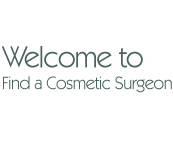
FAQ
What is cosmetic surgery?
Cosmetic surgery is a board-approved elective procedure that is performed by a trained cosmetic surgeon to improve a patient's appearance. Cosmetic surgery procedures, such as chin liposuction, breast augmentation, tummy tucks and nose job rhinoplasty, mold unflattering face and body features into beautiful contours and textures.
Is cosmetic surgery dangerous?
While there are cosmetic surgery risks and cosmetic surgery complications to be wary of, such as post-operative liposuction swelling, cosmetic surgery is generally safe, depending on the invasiveness of the surgery and the dose of anesthetic. Your cosmetic surgeon will assess whether a particular procedure is suitable for your anatomy and health status. Please see our "Choosing a Cosmetic Surgeon" page for tips on finding a reliable doctor.
Are there any regions of the body on which liposuction cannot be applied?
The fact is, very few body parts wouldn't be improved with liposuction. Fatty deposits exist and can be removed from nearly every region of the body. The means and degree of precision required vary from region to region, however liposuction can indeed be applied almost anywhere. Consider neck liposuction, arm liposuction and breast liposuction if you feel you need to be smoothed out.
Is tattoo removal a subset of cosmetic plastic surgery?
Yes, tattoo removal is performed to obliterate or lessen the presence of tattoo ink or objects embedded in the skin through cosmetic surgery procedures such as minor excision surgery, dermabrasion, saline injections or the use of lasers.
What exactly is a thread face lift?
A "contour thread" facelift, known informally as a thread face lift or a string face lift, is a less invasive method of maneuvering and firming the muscles and skin of your face. The threads have barbs that line face sections and pull them gently to create a polished symmetry of your face.
How much do cosmetic surgery and plastic surgery generally cost?
Plastic surgery that is necessary as it is performed post-trauma to reconstruct a facial or bodily feature is usually partially covered by insurance. Cosmetic surgery that is elective and performed to revamp unflattering facial or bodily parts, on the other hand, is not covered by insurance. Both plastic surgery and cosmetic surgery range in cost depending on the cosmetic surgeon's practice and how intricate the procedure is.
What are some signs of an inexperienced or disreputable cosmetic surgeon?
Three obvious indications that you should seek the services of another cosmetic surgeon are: 1. The cosmetic surgeon makes you feel uncomfortable and neglected as he or she avoids questions or refuses to answer your inquiries completely; 2. The cosmetic surgeon suggests combining several major surgeries into one operation to save costs of the facility and anesthetic; 3. The office of the cosmetic surgeon appears messy and far from sterile. A reputable cosmetic surgeon will work professionally in a clinical environment, make you feel at ease and answer all of your questions amicably, comprehensively and thoroughly.



